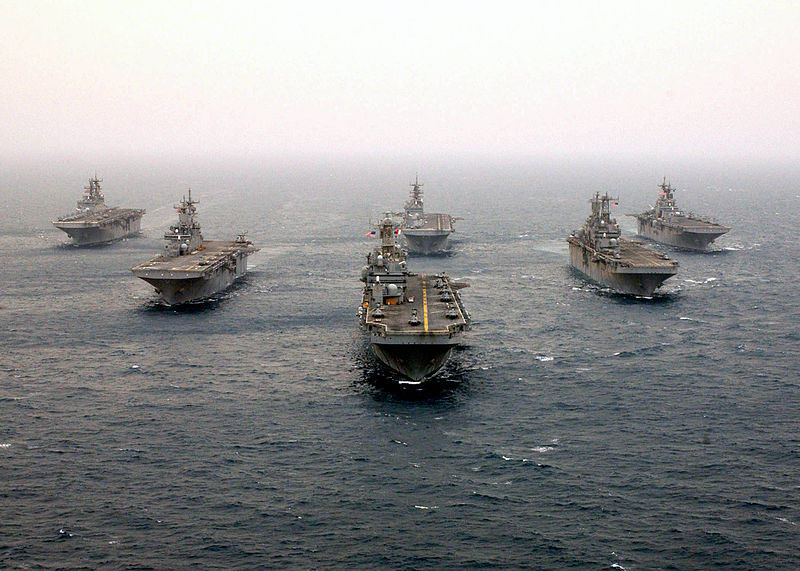Carry On Wayward Empire
 Here’s the good news: the United States has enjoyed 20 years of unchallenged and unprecedented supremacy as a world power. The bad news? The United States has enjoyed 20 years of unchallenged and unprecedented supremacy as a world power.
You think you’ve heard of this double-edged sword before. After the collapse of the Soviet Union, the United States enjoyed a period of prolonged prosperity and prestige, but in our hubris, we declared a New World Order – the United States, in the name of international law, would patrol the globe, upholding peace and ensuring justice whenever it saw fit. The Gulf War and humanitarian interventions in places like Kosovo would replace America’s crusade against communism. 9/11 happened, and then W. messed everything up, right?
Here’s the good news: the United States has enjoyed 20 years of unchallenged and unprecedented supremacy as a world power. The bad news? The United States has enjoyed 20 years of unchallenged and unprecedented supremacy as a world power.
You think you’ve heard of this double-edged sword before. After the collapse of the Soviet Union, the United States enjoyed a period of prolonged prosperity and prestige, but in our hubris, we declared a New World Order – the United States, in the name of international law, would patrol the globe, upholding peace and ensuring justice whenever it saw fit. The Gulf War and humanitarian interventions in places like Kosovo would replace America’s crusade against communism. 9/11 happened, and then W. messed everything up, right?
Maybe, but that isn’t the whole story.
As Colin Powell once said, “I’m running out of villains. I’m down to Castro and Kim Il Sung.” In 1991, America inherited something rare and priceless: a free hand. No rigid balance of power, no clear threats, and no real enemies. And what did we do with this blank check? Well, we got drunk, blacked-out, and blew it all. The consequence of the United States’ 20-year free reign – it can no longer lead and prioritize. Look at last week's announcement that the United States is involving itself in the fight against the Lord’s Resistance Army in Uganda, just the latest example of our bloated, unfocused foreign policy.
But now, there’s a storm coming. Rising regional powers, especially China, are threatening America’s primacy in the global commons and, thus, potentially undermining global economic and political order in which we are all entangled. If Washington fails to develop a strategy to manage these historic changes strategically, the outcome will be disastrous.
Having squandered our good fortune, how do we meet these challenges? While that cannot be fully answered in any column, the first step is fairly straightforward – America must come to terms with what it is: a global power. We have fallen into the world, and this pick-and-choose strategy often distracts us from our national security needs.
In the next decade, US forces will eventually return from Iraq and Afghanistan, new players on the world stage will grow stronger, and America’s decline will be heralded like never before. The next President must simultaneously deal with these three key trends; he will have to abandon the expansive interventionism of the past 20 years and anchor his foreign policy in grand strategy--he must define those interests that are unchanging, and learn to prioritize those which are not. Freedom of the seas, Earth orbit, and cyberspace is a non-negotiable American interest, and it is permanent. The pursuit of rebel cults in Central Africa and the disposal of two-bit dictators like Muammar Qaddafi are of marginal importance to national security, and if they distract us from our core interests, they should be discarded.
